BWW Exclusive: What You Oughta Know About JAGGED LITTLE PILL
If you are of a certain age, Jagged Little Pill was a large part of the soundtrack of your teens and twenties. It was loud, raw, and felt like a glimpse inside the pages of a young woman's journal. Even if it wasn't an album that impacted you personally, you certainly understood the cultural significance of it.
When the single "You Oughta Know" hit the airwaves in 1995, I fell in love almost immediately. The CD was on repeat for months (sorry, Mom). I listened to it as I fell asleep, and woke up to it the next morning. That well-worn copy of Jagged Little Pill still sits on my shelf today, next to its reissued, remastered, and acoustic versions.
I could hardly contain my excitement when the show was first announced. But, with that excitement came fear. Would the songs I so loved (and could still sing 24 years later) be ruined? At a recent press event, attendees were treated to a few songs and a short panel discussion with the creative team. Here's a little bit of what I learned and what you oughta know about Jagged Little Pill the musical.
%20Jenny%20Anderson(1).jpg)
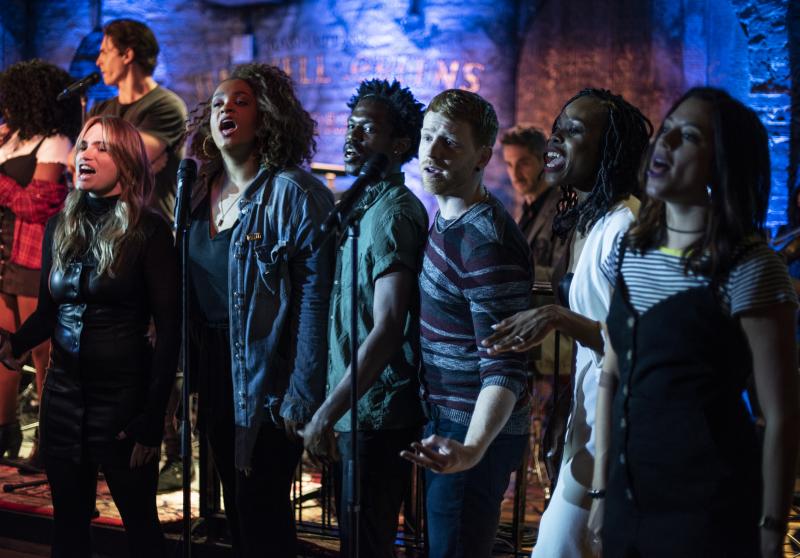
The energy in the room was palpable-from the invited press who lived through and loved the album when it was first released, to the cast waiting to take the stage and share these songs with us. During each song, many of us danced along and mouthed the words. These songs are still part of us. They still move us. And that, at least for me, is what makes this musical so exciting. It's a story told through songs we know-yet they sound fresh and new.
Any fears I had about the music were put to rest with the first few notes of "All I Really Want." Elizabeth Stanley and Celia Rose Gooding manage to evoke the style of Alanis Morissette without simply mimicking her voice. Joined by their incredible cast mates, this arrangement is both totally recognizable as the original and a gorgeous new creation.
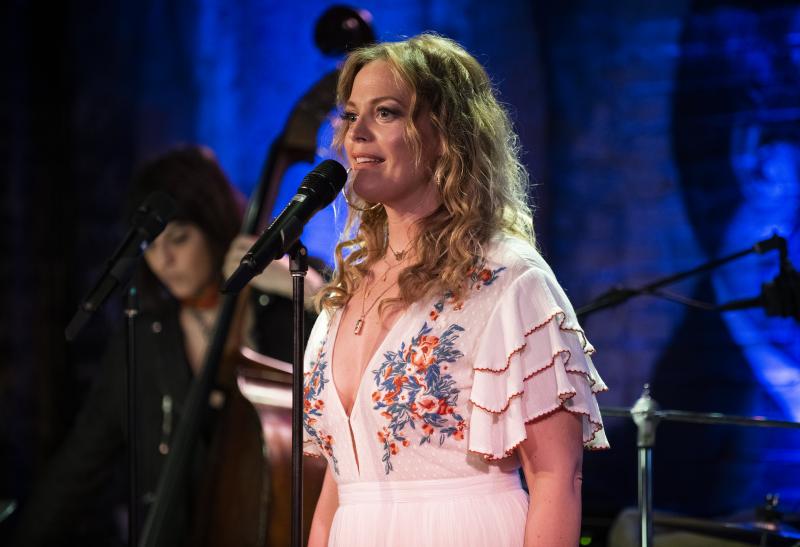
Unlike many jukebox musicals, this is not the Alanis Morissette story-much to her relief when the idea was first pitched. When writer Diablo Cody revisited the album in preparation, "Mary Jane" jumped out as the main character and became the basis for the musical's story. Cody also made it clear that there was no attempt to force hit songs into the narrative. Songs were chosen to fit the story, and while Jagged Little Pill provides the majority of the source material, the musical also features songs that span her career, as well as songs newly written for the show. The second song of the evening was a stunning new song-"Smiling"-performed by the show's Mary Jane, Elizabeth Stanley.
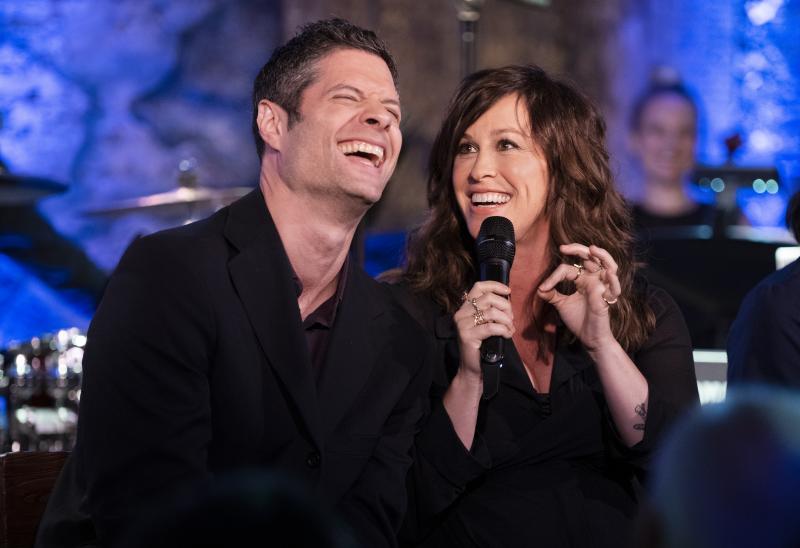
As noted by several members of the creative team, this album still feels current and relevant and could have just as easily been written last year. What was so personal in 1995 has become political now. As the writing process was underway, the world saw the beginning of the Trump presidency. During the initial production at A.R.T. in Cambridge, the Kavanaugh hearings and the "Me Too" movement dominated the news. These events helped shape the musical as it is today, as both a reflection of and a response to the current climate, as told through one family's story.
What became so clear, even in a very short presentation, was the deep respect and reverence from the entire family (and they insist that they are not a team or a company, but a family). The creatives-Tom Kitt, Diablo Cody, Diane Paulus, and Sidi Larbi Cherkaoui-all expressed tremendous love for Jagged Little Pill. They were fans when the album was released in 1995, and as collaborators now have developed an even greater love and understanding for the music.
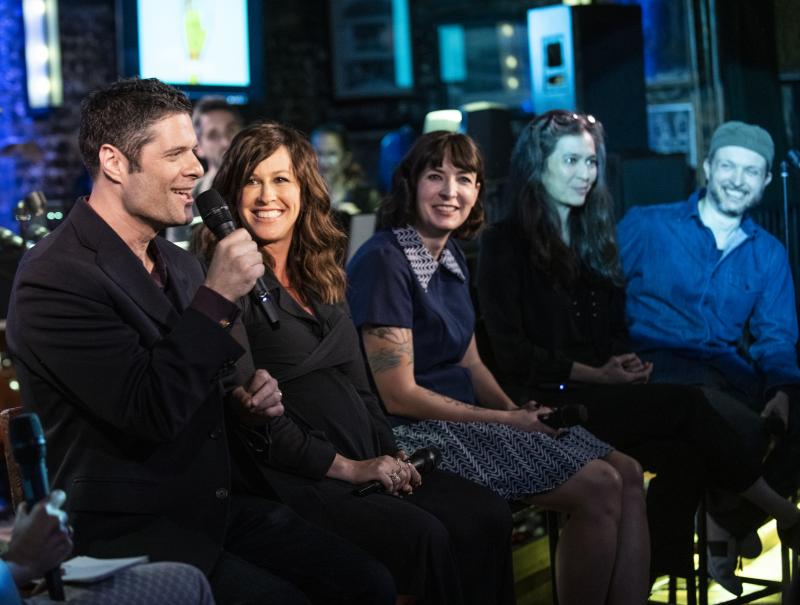
Perhaps some of the sweetest-and funniest-moments came from Morissette herself. She admitted that when she performs these songs now, she finds herself saying "F*** that guy" in regards to Tom Kitt (said with pure love and admiration). She was so blown away by the arrangements he created and by the new life he gave to the songs she wrote so many years ago, she wishes she could perform these arrangements herself.
She also expressed deep gratitude for the performers and for the show. While many other songwriters use their craft as a way exorcise their personal demons and to heal, she found that even performing these songs years later brought out the same emotions as the day she wrote them. She admitted that it wasn't until she experienced the songs in this way, with new arrangements and new voices, that the healing finally began.
And, we learned, she gave directing notes to Diane Paulus (who recounted the moment with a smile). When you see the pharmacy scene, know that Morissette had a hand in its development.
I'll reserve judgment for the final full production, but if these few songs were any indication, we all might just fall "Head Over Feet" for this show.
Photo Credit: Jenny Anderson



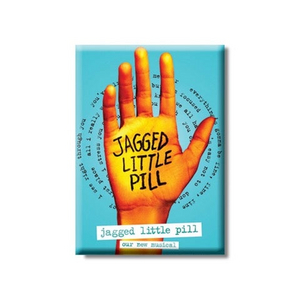 Jagged Little Pill Logo Magnet
Jagged Little Pill Logo Magnet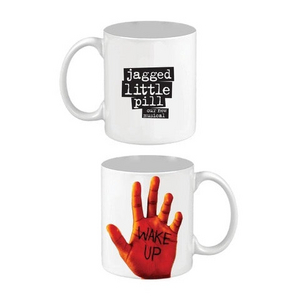 Jagged Little Piill Logo Mug
Jagged Little Piill Logo Mug Jagged Little Pill Unisex Hand Tee
Jagged Little Pill Unisex Hand Tee